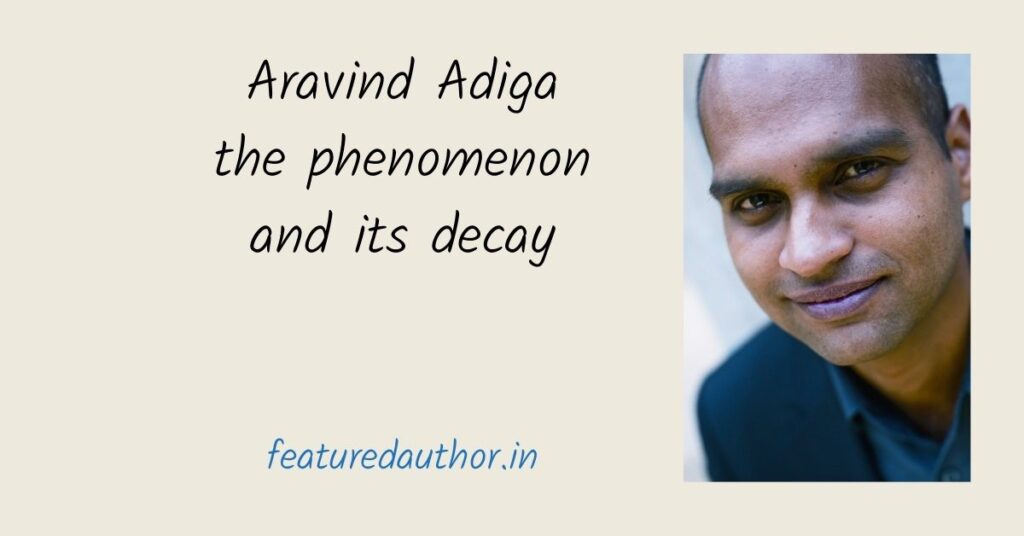
Aravind Adiga is an Indian novelist and journalist best known for his debut novel “The White Tiger,” which won the Man Booker Prize in 2008. Adiga’s writing is characterized by its sharp social commentary, satirical tone, and exploration of themes such as poverty, corruption, and class divides. To read a complete biographical article, critical commentary on his writing and know more about Adiga’s awards and accolades, you can refer to this article on The Indian Authors – Aravind Adiga.
Let’s begin deconstructing the writing style of Adiga. We will not go into the depths of his works. We will focus on his style, features and craft. Starting with one of the notable features of Adiga’s writing is his use of humour and satire to comment on the social and political issues of modern India. Keep in mind that this was the India that was waking up from its economic slumber (much inspired by the liberalisation that opened the floodgates of boom and doom). His writing often exposes the absurdity and hypocrisy of certain societal norms and institutions, such as the caste system and the government’s failure to address issues of poverty and inequality. He does it in a humorous, rather dark, way. He does not let you feel bogged by the pressure of his satire. And that’s why he chooses a humorous apparatus in the form of Balram halwai. However, once you go deeper, you feel the problems and darkness coming to you.
In addition to his use of satire and humour in combination, Adiga’s writing is also notable for its depiction of the lives and struggles of the impoverished and marginalized people of India. His works often focus on the lives of those who are trapped in a cycle of poverty and exploitation, and the ways in which they try to break free from this cycle. It is notable that the vision of Indians trying to break free from the cycle of poverty is not well-guided. He mocks the intentions of those who are poor. And his humorous character hides sinister ideas which deceive the sympathetic angle Adiga wants us to focus on.
Moreover, Adiga is also known for his vivid and evocative descriptions of life in India. He paints a detailed and nuanced portrait of the country and its people, capturing the diversity and complexity of Indian society. And here, one has to appreciate the efforts of Adiga. He has been able to capture a 360-degree landscape image, panoramic would be a better world, covering both sides of the Indian spectrum – Balrams and their masters.
Another feature of Adiga’s writing is his use of multiple narrators and perspectives. In “The White Tiger,” for example, the story is told through the perspective of a poor and uneducated man named Balram, who tells the story of his rise from poverty to success as a self-made entrepreneur. This use of multiple narrators allows Adiga to explore a range of viewpoints and experiences, and to give voice to the stories of those who are often marginalized or ignored by mainstream society. He is able to arouse various emotions in readers by using this device in the narrative. Readers, on the other hand, have to wait to hear every party before they reveal their intentions.
To conclude, Aravind Adiga’s writing is characterized by its sharp and vivid social commentary, satirical tone, and depiction of the lives and struggles of the impoverished and marginalized people of India. His works are both thought-provoking and entertaining and offer a unique and powerful perspective on the complexities of modern Indian society. His Man Booker, however, remains still the last (and first) notable award he received. After The White Tiger by Adiga, he could not produce something that raised his stature as the novelist he promised to become after the maiden publication. Between The Assassinations and The Last Man in Tower could not do more favour to the author. Amnesty, his recent publication, once again took a jibe at India and Indians. This was, nevertheless, a poor attempt to exhibit Adiga remains confused about his connections with India – is it to be inspired or something to be mocked at?
Aravind Adiga remains active as a political commentator and a screenwriter. He has scripted Selection Day, a drama TV series based on cricket.
By Chitra M for Featured Author